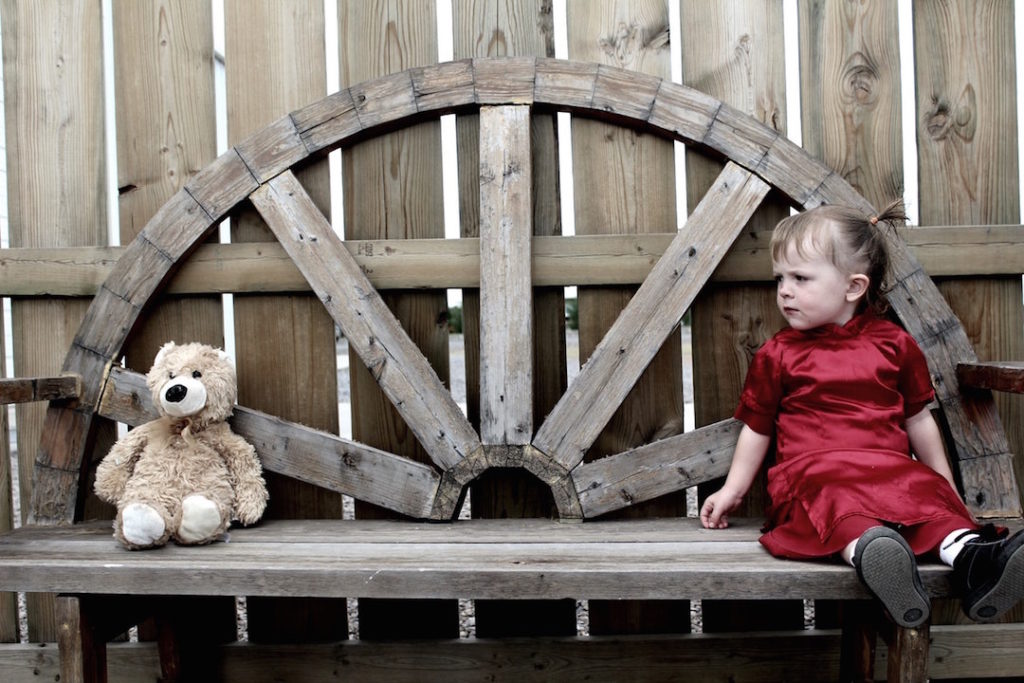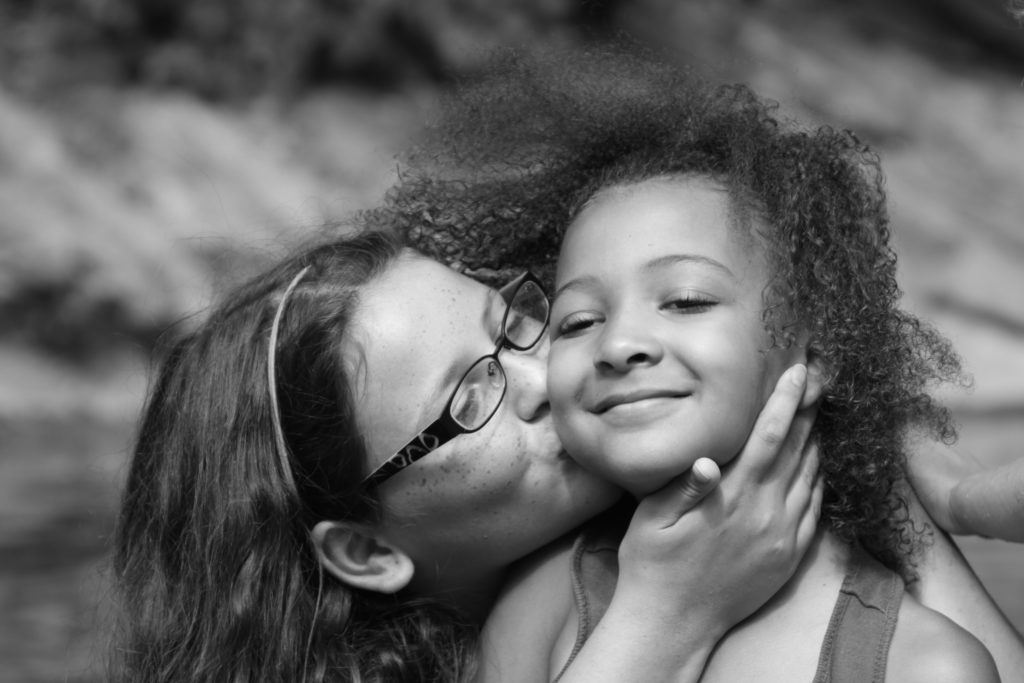
How to Repair Relationships and Turn Poop into Gold
A couple of years ago I was lucky enough to attend a training with Arietta Slade. For those of you who have never heard of her, Slade is an all-star of early childhood mental health. At one point when she was taking questions, someone in the audience asked her for one piece of advice she would give to parents of young children. Her answer: “Repair.” A simple notion on the surface, repairing is one of the most challenging acts that a parent can perform as it contracts every fiber of their emotional muscles. Let’s look at an example:
Lucy’s Not Going to Talk...Ever!
This summer Rafa is a man on a mission. Correction: a grumpy man on a mission, having just awakened from an accidental Sunday afternoon nap. One of his goals is to teach his 6-year-old, Lucy, to ride a bike. But progress has been slow-going. Lucy is a sweet kid, usually. She’s just not big on taking risks, especially physical ones. She’s ready to dig in her heels--or at least drag her feet--as soon as she hears her dad grumbling in the hallway about a “bike ride.”
It doesn’t take long for the spark to turn to fire as Rafa reprimands Lucy for taking too long to get out the door. Lucy bristles, steals a ferocious glance at her dad, and chokes back tears as she walks to the car. Seeing his daughter upset brings Rafa to the present moment. He immediately makes the connection between his impatience and her tears. He starts to calm down and feel guilty. An apology is on the tip of his tongue, but he still feels a little salty. Lucy, on the other hand, is in savage mode. As she buckles up, she barks, “I am never, ever, eeeeeeever, talking to you again, starting...now!” Rafa swallows the apology, turns on some music, and starts to drive.
On the short trip to the park Rafa struggles with the self-doubt and the inevitable uncertainty that comes with these moments. Bubbling into his consciousness are questions like:
- Is this my fault? Am I setting a bad example for her?
- Am I being too permissive? Is she walking all over me? Am I being too harsh? Should we skip the bike practice?
- Should I say something now? Am I going to shut her down if I keep trying to work through it?
- If I keep talking, is she going to escalate and say something that sends my anger through the roof?
- What would my parents/friends/partner/spouse say if they saw this interaction?
- What are the family values that I want to uphold and teach my daughter in this interaction? How do I calm myself down enough to even teach her?
How do Rafa and Lucy move forward?
Rupture, Repair, and Relational Alchemy
Let’s first talk about what repairing is in relationships. Repair is about making things right, pressing the relational reset button, or sharing the feeling that “We’re OK again.” The Attachment Theory folks see repair as being joined at the hip with rupture, another deceptively simple idea that points to conflicts, dust-ups, and the feeling that “We are NOT OK right now.” As the story goes, typical--even healthy--relationships are characterized by continuous cycles of rupture and repair. It’s when the repairing is absent that relationships begin to suffer and weaken.
Ed Tronick, another luminary of the study of babies, uses the idea of “the good, the bad, and the ugly” to explain the rupture-repair cycle. The “good” is when the parent and child are doing their normal thing, enjoying each other’s company (e.g., playing peek-a-boo). The “bad” is when the caregiver and child lose their shared rhythm, creating some measure of tension. One such rupture might occur when a mother gets frustrated with her baby because he’s not latching well and getting the milk he needs. Another example is when a father loses his temper with his toddler for making a mess. The “ugly” is when these ruptures happen chronically, snowball into more intense conflict, and don’t get addressed by the parents (i.e., no repairing).
"As the story goes, typical--even healthy--relationships are characterized by continuous cycles of rupture and repair. It’s when the repairing is absent that relationships begin to suffer and weaken."
It’s one thing to be able to describe the problem (i.e., the poop). It’s quite another to transform the problem into a solution (i.e., the gold). Let’s try by looking at some elements of a solid repair:
- Get calm(er)
- Acknowledge your part in the rupture and consider apologizing
- Accept the child’s feelings but not necessarily her behavior
- Correct the child’s misbehavior, if needed
- Return to connection and activity (together or separate)
Returning to Rafa and Lucy:
Still not sure what to do with his lingering feelings, Rafa decides to stay quiet about the little quarrel and wait until after the biking. For an instant he feels a faint hope that the physical activity will help both of them shake it off. The next hour is no miracle, but it’s good enough. Lucy is the tiniest bit less afraid of riding her bike, Rafa feels good that he dedicated some time to his child, and both have moved the previous conflict to the back burner.
On the drive home Rafa continues to repair: “I’m sorry I was grumpy with you earlier, Lucy”
Lucy: “Yeah, you shouldn’t take naps!”
Rafa: “I guess it didn’t feel great when I was mad and rushing you out the door.”
Lucy: “No.”
Rafa: “I know you worry about riding the bike, and you don’t want to do it. But we’re going to keep practicing until you feel comfortable riding on your own.
Lucy: “I know. I just get scared I’m going to fall.”
Rafa: “Mm-hm. I hear you. It’s OK to be afraid. The more you practice, the less scared you’ll feel.
Lucy: [Pauses and thinks for a moment] “What are you going to make for dinner?”
Is this a do-or-die situation? No, not at all. It’s the most banal kind of conflict there is: A kid’s mad at her crabby dad because he’s making her do something she doesn’t like. The point is to draw attention to the ruptures that occur everyday between children and parents and the need to heal them whenever possible.
"Relational alchemy is not an exact science, and gold is not always the final product."
Repair doesn’t have to take place immediately, but, in general, the sooner the better. The older the child the longer you can take and the more flexibility you have in figuring out an approach. Rafa didn’t know what he was going to do. With all his inner tumult, he could only muster one idea: Wait until after some physical activity to work out the conflict. And that was enough. Relational alchemy is not an exact science, and gold is not always the final product. But there are indeed many ways for caregivers to invite their children back to feeling that “We’re OK again.”



